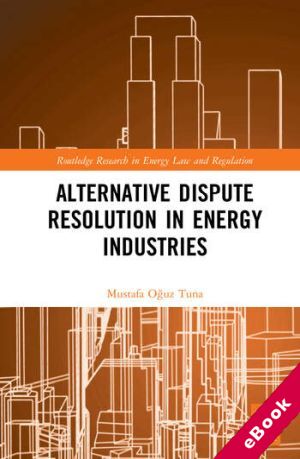
The device(s) you use to access the eBook content must be authorized with an Adobe ID before you download the product otherwise it will fail to register correctly.
For further information see https://www.wildy.com/ebook-formats
Once the order is confirmed an automated e-mail will be sent to you to allow you to download the eBook.
All eBooks are supplied firm sale and cannot be returned. If you believe there is a fault with your eBook then contact us on ebooks@wildy.com and we will help in resolving the issue. This does not affect your statutory rights.
The disputes that arise between host states and investors in the energy sector put a high number of valuable and vital projects in the countries at risk. Investment treaty arbitration mechanisms, as the traditional remedy, have provided a solution to these problems for decades. However, as the number of disputes increases, the sufficiency of arbitration in responding to disputes became questionable in addition to the long-lasting and costly cases. Accordingly, ADR mechanisms outside the arbitration cannon have triggered growing interest among practitioners. Despite the attraction and the apparent benefits of ADR such as being cheaper, faster and with better outcomes compared to arbitration, there are also hurdles in front that hinder the application of ADR. This has lead to the underuse of ADR in appropriate contexts. This study has been conducted to research the gap for the applicability of the ADR methods for investment disputes in the energy sector with the doctrinal analysis of the existing literature either promoting or opposing ADR. Its findings provide guidance for alternative dispute resolution practitioners on when to use ADR, how to use ADR and on what disputes ADR to be used to resolve conflicts in International Energy Investment.